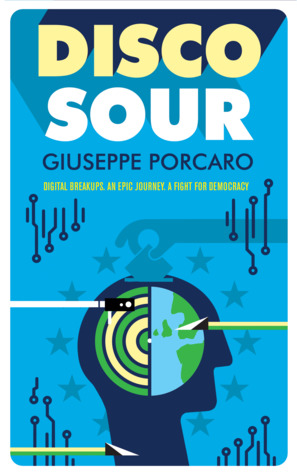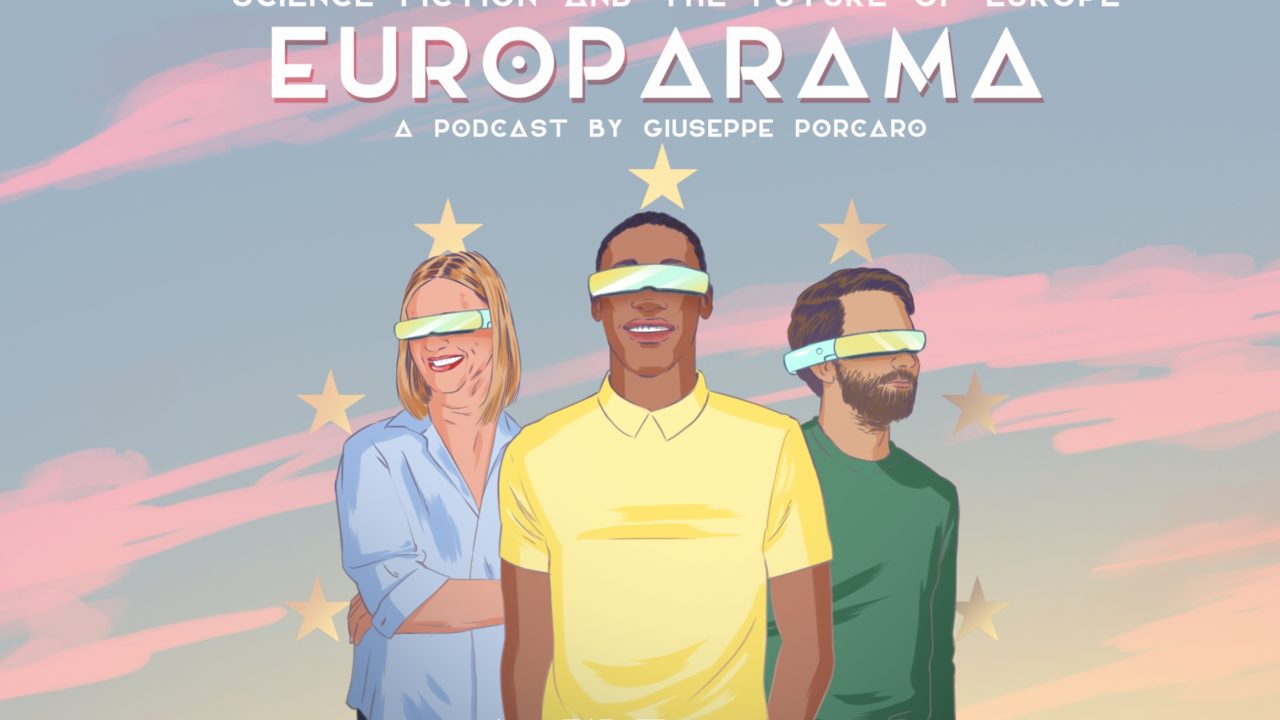Giuseppe Porcaro and the many possible European futures
17 May 2019

With our annual theme ‘Democracy Needs Imagination’ it is no wonder we soon ran into Giuseppe Porcaro. He published ‘Disco sour. Digital breakups, an epic journey, a fight for democracy’ on the future of the European Union. The book – praised by science fiction writer Dave Hutchinson and the jury of the ‘Altiero Spinelli Prize for Outreach’ alike – kickstarted many things for Giuseppe, proving that indeed we can change the future if we imagine doing so. More on that future later in this interview, because – first – how did he get started?
“After being involved in campaigns to get young people to the ballot boxes for the EP2014 elections in my function as the secretary-general for the European Youth Forum I was disappointed with the low voter turnout. I needed to find other ways for my European engagement and as science fiction, or speculative fiction, is very dear to me, I started looking there.
I soon found out that involving others in the creative process was enriching for me. After consulting artistic storytellers as screenwriters or curators I decided I could even open it up a little more. As I live in Brussels I could also involve members of European Parliament, spin docters, lobbyists – it became cosmic. It helped me to place familiar things from politics into symbolic ‘spheres’. Which I think is important as many people lost the symbolic sense of the European project. That loss prevents us from duplicating visions and the result is the easy and very polarized pro EU / anti EU campaigns now running to the elections. By inviting many different speakers to live events, I could test different scenarios. I could even bring back war into the European Union.”
Your book also plays with the roles of algorithms and their influence on human relations, literally by describing an app that allows for breaking up ‘cleanly’. It seems to me that it is also a critique of the so-called atomization in our societies, of us belonging to a system, but unable to actually relate with that system. Did I read that right?
“There is of course a difference between individualization and atomization. With the first term we praise something and the latter is indeed a critique. I’d like to see them as complementary. Also in political sense. Because a critique of democracy is mostly a critique of an outcome of a democratic process. But by doing so we neglect that democracy is a process not an outcome. Whilst even the word ‘democracy’ could be explained as ‘a people, in co-creation, in dialogue, in dialectics, in conflict’. So, then our next question should be “How did we get there? What value do we give to oppositional voices?”
So, Giuseppe, how did we get here?
“A strange thing happened. The system is in the defensive, while the opposition used to be in the system. I argue that the European Parliament is not the problem; it is a very transparent institution. We might find the problem within the political parties that we are to elect. Now, I don’t want to sound nostalgic, but political parties used to be a bridge between citizens and the system. They were civil society, grassroots mobilisers. They were more than election machines. That seems to have changed. Also, ideological differences becoming less evident, the traditional parties converged to the centre of the political spectrum, leaving spaces which have been occupied by populists and nationalists.”
George Monbiot writes: “Despair is the state we fall into when our imagination fails. When we have no stories that describe the present and guide the future, hope evaporates. Political failure is, in essence, a failure of imagination.”
“Yes. The need for grassroot mobilization is there. See gilets jaunes, see other movements.”
Is speculative fiction a means to mobilise new grassroot movements?
“No. I would say not to find solutions. But it is a great tool to open your mind. And speculative fiction appeals to readers that are political in a different way.So it surprised me there hardly exists speculative fiction on the European Union, or more generally there is very little imagination in the political futures that are presented. Which is extra strange as we all feel a need for testing grounds, for laboratories in which we imagine our futures.”
So you decided to [remember we mentioned a change in Giuseppe’s life] to become a messenger to convey science fiction future scenarios?
“Yes, I did. Disco Sour is only one possibility for our future, but there can be as many as we want to. So I embarked on a mission: To engage in conversations with writers from everywhere in Europe for my podcast series Europarama, produced together with Are We Europe. We talk about our continent, and hopefully present listeners a collection of possible futures.”

